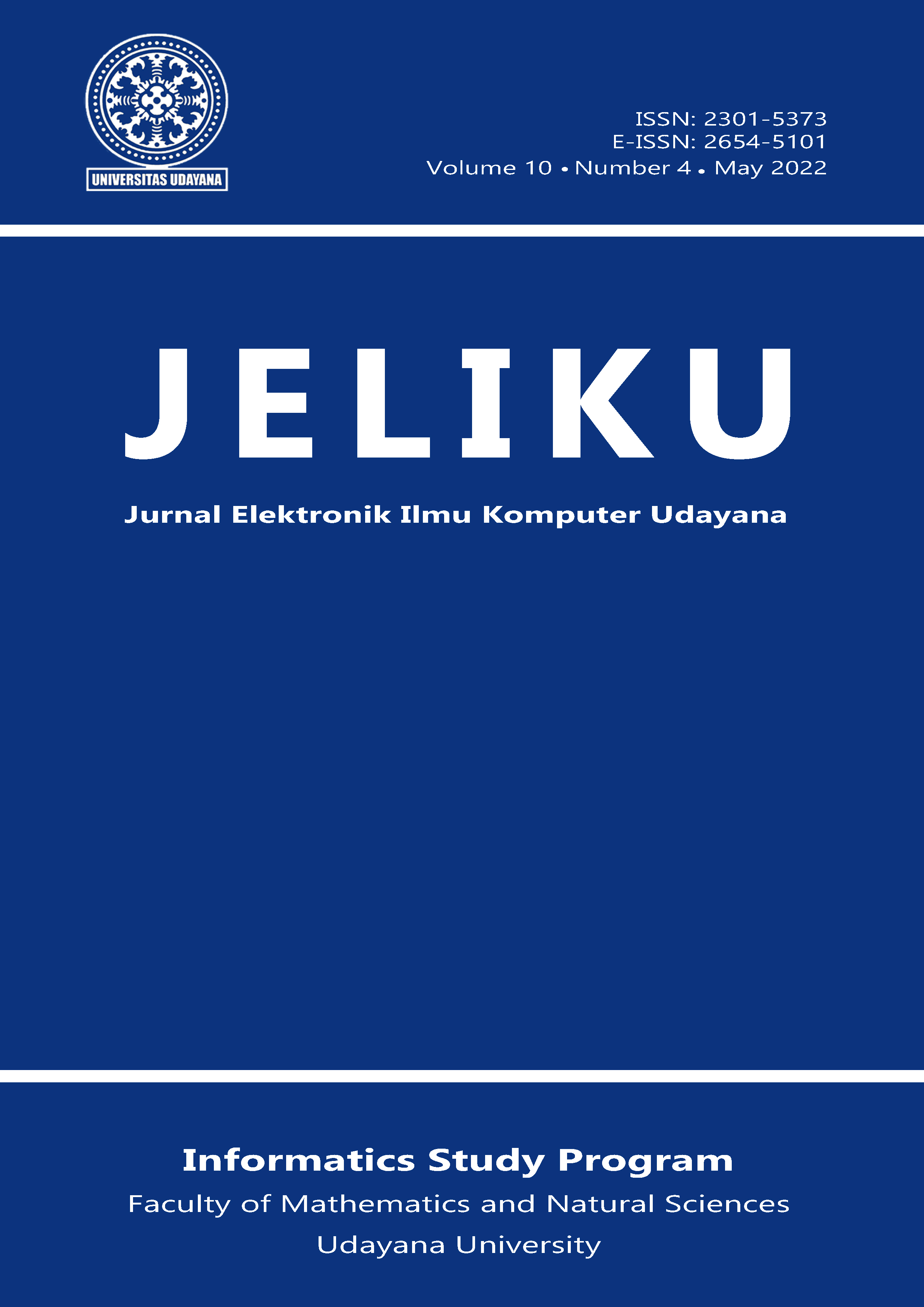Implementasi Generalized Learning Vector Quantization (GLVQ) dan Particle Swarm Optimization (PSO) Untuk Klasifikasi Kanker Payudara
Abstract
Breast cancer (BC) is the biggest cause of death from cancer every year. Delayed early detection is one the causes of the high incidence of BC. Machine learning-based classification has been widely used for automatic early detection and classifying cancer types. GLVQ was used to classify BC into benign and malignant. GLVQ has sensitivity to the initialization of a random weight vector which affects the accuracy of the results. PSO is used to optimize the initial weight vector on GLVQ, so that the optimal initial weight vector is produced. The data processing stage includes handling outliers with Winsorizing method, z-score normalization, and dimensionality reduction using PCA. Changes in the parameters cognition learning rate, social learning rate, and inertia in PSO affect the results of the optimization of the weight vector which is indicated by the average value of the resulting fitness. The combination of cognition learning rate=2,4, social learning rate=2,1, and inertia=0,6 produces the highest average fitness value of 0,91868. Changes in the parameters learning rate and number of prototype per class in GLVQ affect the level of accuracy and error rate of the resulting breast cancer classification results. The combination of learning rate=0,1, number of prototype per class=5, maximum epoch of 100, and minimum error tolerance of 0,0000001 produces the highest average accuracy value of 0,956044. PSO-GLVQ performance provides higher accuracy, recall, and F2-Score values than GLVQ.






